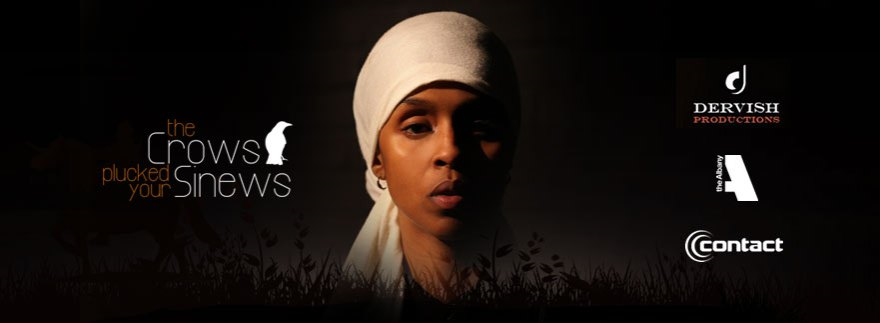This is a brave, visceral and honest proclamation of modern integration in the face of bloody history, hostility and clashes of faith. It is an important piece of theatre that needs to be seen by a wider audience; that will leave you moved and searching for difficult answers. It’s a unique piece of art that does not come around very often.
The play is an ambitious monologue of a second or third-generation Somali who is looking after her Alzheimer-stricken grandmother. Her grandmother is stuck in the era of the First World War, when a violent war raged in Somalia between the natives and the UK and Italy. The dissonance between a streetwise south-London girl and her parents’ and grandparents’ justified hatred of foreign invaders is expanded as we hear details of her family’s modern-day problems and the ghosts that haunt them. It is difficult viewing at times, but it is something that all can benefit from. The true strength of the writing is its honesty, as we feel that we are getting a true glimpse into the thinking of people from a radically different background and culture to our own. At times it is uncomfortable: the girl describing her sadness at Osama bin Laden’s death and his body being, “in the custody” of the Americans. A video display of Barack Obama saying, “no Americans were harmed,” on repeat. The murder of a British mercenary in Somalia during the war that leads her grandmother to discover personal letters from the victim’s mother, which are delivered in a mocking RP accent. But this writing is brave, there is no direct judgement here or summing-up of arguments, there is only the portrayal of how a people feel and how a people are dealing with unwanted exile in a foreign land. 
The play explores integration and the dark side of it: a brother dealing crack cocaine, subjected to abuse by a police force trying to stitch him up for terrorist offences, is probably a greater example of integration than we’d care to consider. Our sympathy for the narrator is tested over as grim truths are explained, and yet we stay with the narrator, we believe in her, and we know that she is good. This is transformational theatre, and important writing. A novel needs to written from this, or a film.
The performance by Yusra Warsama is arresting in its skill and intensity. She greets us with, “Do they see me in black or white, or in colour?” before taking us through a heartfelt characterisation of a whole family, through generations, switching between Somali and English, from south London bravado to the pain of previous generations. The play is never boring as she tells a story spanning generations with dexterity and heart, and an unflinching treatment of attitudes we either didn’t understand or fear didn’t exist. “I felt sorry for him,” she explains regarding the death of Osama bin Laden. The mother, father, grandmother and brother all have starring roles, and all are expertly expressed through her.
This is powerful piece of theatre supported by beautiful music, played on the Oud by Abdelkader Saadoun, supported by some slick visuals, and orchestrated by a skilled team of directors. No set is needed here, and the plain black set enhances the phenomenal performance by Warsama. The writer, Hassan Mahamdallie, is a pioneer in his honesty and the intent to portray the beliefs and attitudes of Somalis truthfully and cleverly, and in a way that shows that, as much as she states, “we are not human… we are djinn travelling… nowhere and everywhere,” they are human as much as we all are. This play will stay with me for a long time, and the synergy between the writing and performance is understood in the programme which explains the writer wrote the play for the actress.
The production tours Birmingham and London through February and March; please go and see it. For more information go to www.crowsdrama.com #crowsdrama
Reviewer: Ben Spencer
Reviewed: 27th January 2016

